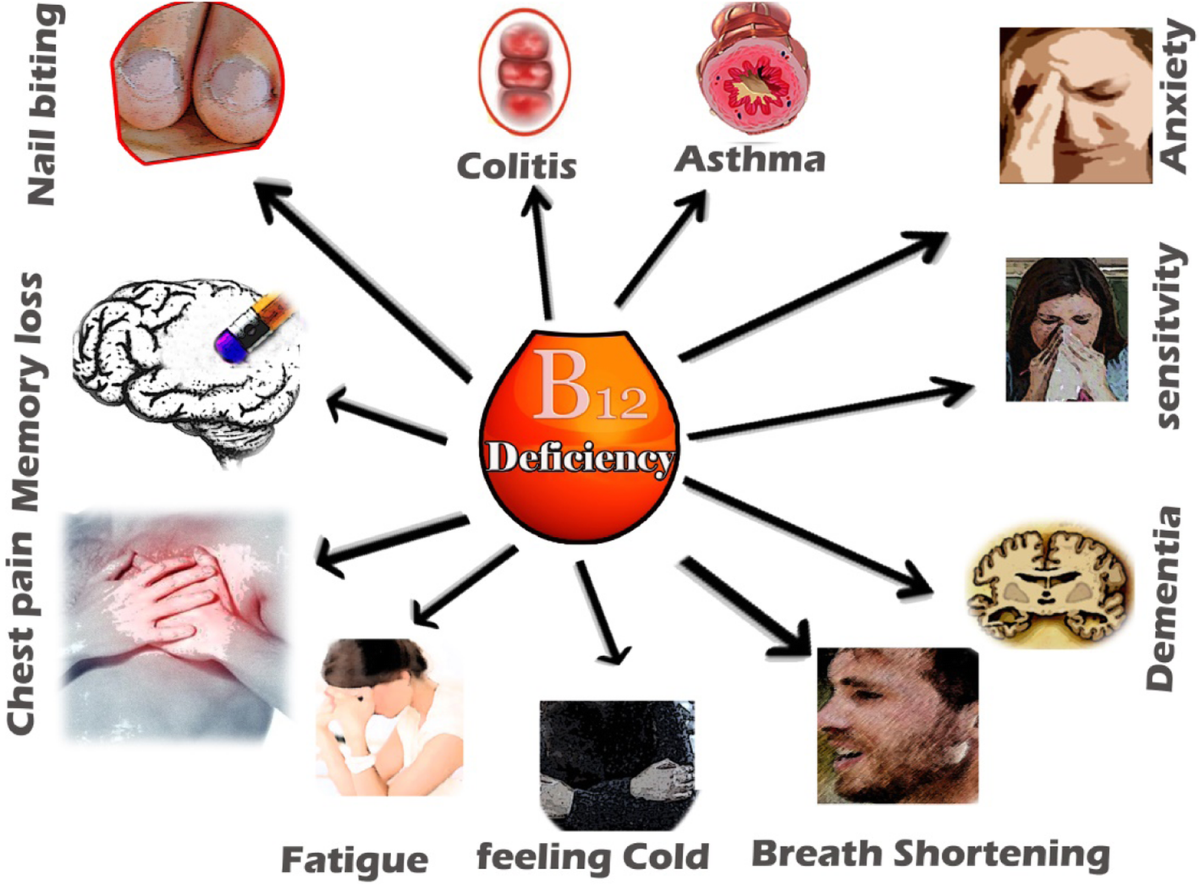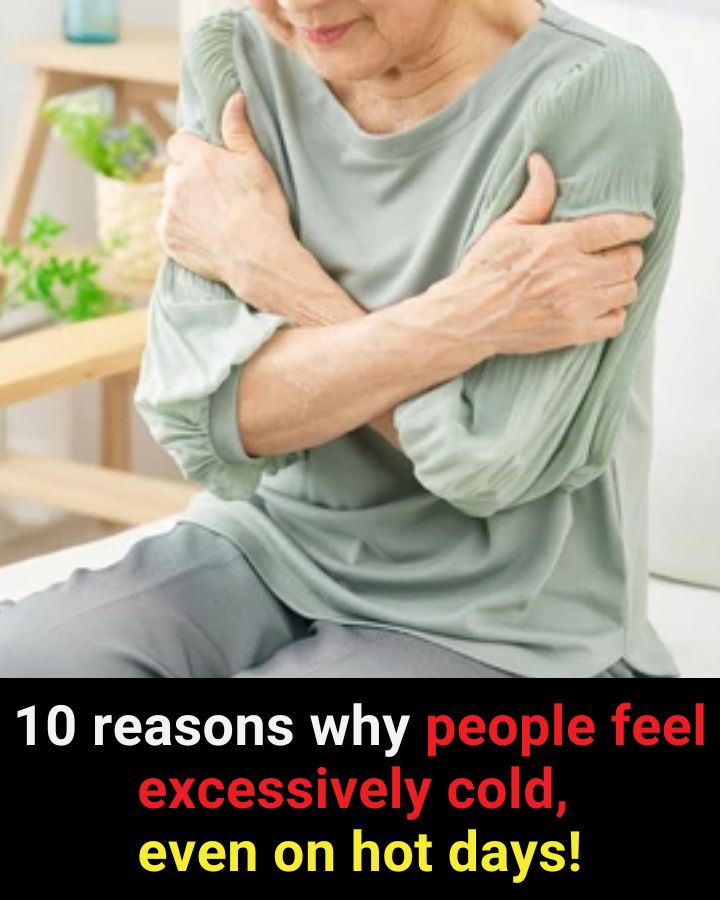It’s common to feel a bit colder during the winter or after being in air-conditioned spaces for an extended period. But if you frequently feel cold—even on warm days—or find yourself layering up while others are comfortable, or if your hands and feet are always freezing, there could be an underlying issue. Experts, including Sami Karjalainen from Finland’s VTT Technical Research Centre, explain that women tend to be more sensitive to changes in temperature than men.
This is partly because women typically generate less body heat, with their body temperatures ranging from 3 to 10 percent lower than men’s. This difference stems from the fact that men usually have more calorie-burning muscle mass, which produces more heat. While biology offers one explanation, there are many other potential reasons why someone might constantly feel cold, ranging from health conditions to lifestyle habits such as sleep, diet, and exercise. Keep reading below for 10 surprising reasons you might always feel cold.

1. Poor Blood Circulation
This can make your extremities—like hands, feet, nose, and ears—feel cold even in warm environments. You might also notice tingling, numbness, or a pale color in those areas. Conditions like peripheral artery disease or diabetes can contribute to poor circulation. Staying active, wearing compression garments, and avoiding smoking may help improve blood flow. In some cases, medication may be necessary, so it’s worth discussing with a doctor. Cold sensitivity caused by circulation problems is often persistent and worsens in winter months. If you’re constantly layering up and still freezing, poor blood circulation could be the cause.
2. Iron Deficiency
Iron-deficiency anemia can make you feel weak, fatigued, and constantly cold. It’s especially common in menstruating women, vegetarians, and people with digestive conditions like celiac or Crohn’s. Even mild deficiencies can affect temperature regulation. Symptoms like brittle nails, dizziness, or shortness of breath may also show up. Iron-rich foods like red meat, beans, lentils, and spinach can help, especially when paired with vitamin C for better absorption. If diet alone isn’t enough, your doctor may suggest iron supplements. Feeling cold along with tiredness is a classic combo tied to iron deficiency.

3. Thyroid DisordersT
The thyroid controls how your body uses energy—and when it slows down, so does your internal furnace. Hypothyroidism can make you feel tired, sluggish, and sensitive to cold, even in mild temperatures. Other symptoms include dry skin, hair thinning, depression, and unexplained weight gain. It’s more common in women and often goes undiagnosed for years. A simple blood test can check your thyroid hormone levels. With proper treatment, including medication like levothyroxine, symptoms often improve significantly. Always feeling cold could be your body hinting at an underlying thyroid issue.
4. Low Body Weight
People with low body fat lack insulation, which makes it harder to retain body heat. Your resting metabolism may also be slower, further reducing your ability to stay warm. This can be due to genetics, diet, eating disorders, or chronic illness. If you’re constantly shivering and underweight, you might need to increase calorie intake—especially with nutrient-dense foods. Low body weight can also affect hormone levels, compounding the problem. In extreme cases, it may impact menstrual cycles or immune response. Regular checkups can help ensure your weight isn’t hurting your health—or keeping you cold.

5. Not Enough Healthy Fats
Healthy fats are vital for hormone regulation and insulation. They help fuel your metabolism and create a slow-burning energy source that keeps you warm. Cutting out fats too aggressively in diets can leave you fatigued, foggy-headed, and chilly. Omega-3s found in salmon, flaxseeds, and walnuts are especially helpful for circulation and inflammation. Eating balanced meals with a moderate amount of fat ensures your body has the tools it needs to regulate temperature. Skipping healthy fats may seem harmless—but it could be the reason you’re always bundled up.
6. Vitamin B12 Deficiency
Lack of B12 affects nerve health and red blood cell production, which can interfere with circulation and make you feel colder. It’s especially common in older adults, vegans, and those with absorption issues. Symptoms can be sneaky: numbness, memory issues, and fatigue are all signs. Since the body stores B12 long-term, deficiencies may develop slowly. Fortified cereals, dairy, meat, and B12 supplements can help boost your levels. If left untreated, it may cause long-term nerve damage. Feeling cold might be your body’s early cry for B12.

7. Raynaud’s Syndrome
This disorder makes your blood vessels overreact to cold or stress, limiting blood flow to fingers and toes. The result? Cold, numb, or even bluish digits during minor temperature drops. Episodes can last minutes or hours and may be triggered by something as simple as holding a cold drink. Raynaud’s often runs in families and is more common in women. While it’s not usually dangerous, it can severely affect comfort. Wearing warm gloves, managing stress, and sometimes medication can help manage flare-ups. If your fingers are always freezing, Raynaud’s might be why.
8. Low Protein Intake
Protein helps fuel thermogenesis—your body’s ability to generate heat after eating. Diets low in protein can leave you sluggish and more sensitive to cold. This is common in crash diets, vegan diets without proper planning, or people with poor appetite. Adding eggs, meat, tofu, or legumes to meals can raise your internal temperature and energy. Protein is also key for muscle health, which in turn supports metabolism. If you’re eating light but freezing all the time, try upping your protein intake. Your body might be craving warmth from within.

9. Poor Sleep Quality
Your body resets and regulates temperature during deep sleep. When you’re sleep-deprived, the hypothalamus—which governs heat control—doesn’t function as well. That’s why tired people often feel cold even when others are comfortable. You might also notice slower metabolism, fatigue, and poor focus. Good sleep hygiene—consistent schedules, cool rooms, no late-night screens—can help. Chronic sleep issues can also lead to hormonal imbalances that mess with temperature control. If you feel cold and exhausted all the time, your body might just need proper rest.
10. Dehydration
Water helps regulate internal temperature and move heat through your body. When you’re dehydrated, your blood becomes thicker, circulation slows, and your skin can cool rapidly. Even mild dehydration can cause chills, headaches, and fatigue. Coffee, alcohol, and high-salt diets can increase dehydration risks. Aim for steady water intake, especially in cold, dry environments. Thirst isn’t always a reliable indicator—by the time you feel it, you may already be low on fluids. Staying hydrated could be the simplest fix to stop those constant chills.

